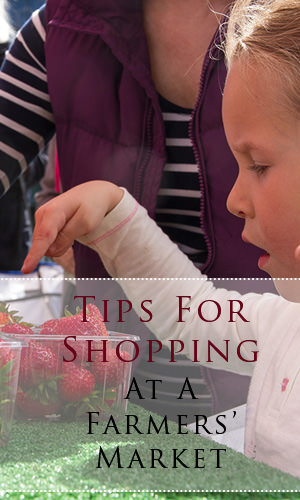
Tips For Shopping At A Farmers’ Market
Posted on 06 Nov, 2021
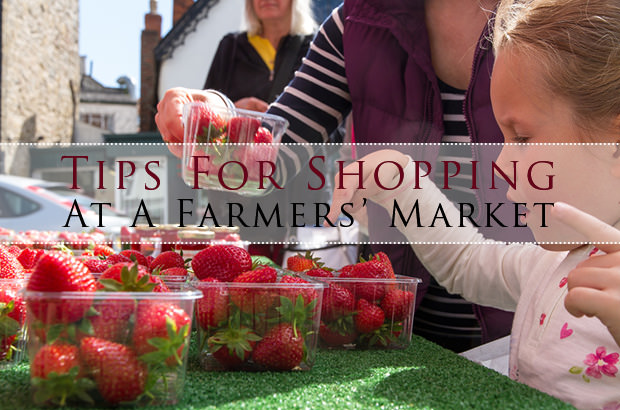
One of the best thing about farmers’ markets is that they’re populated by local farmers, vendors, and artists, which means that not only are you scoring great deals on fresh foods, but you’re also doing your part to help your local economy. That said, shopping at farmers’ markets is nothing like shopping at a grocery store, and for the uninitiated it can be intimidating. Make the most of your experience with these 11 simple tips, and share your own advice in the comments.
1. Don't Be Shy
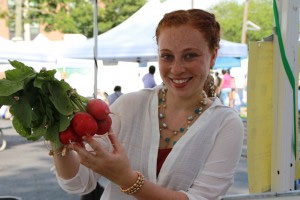 It takes tremendous dedication to both science and art to turn out beautiful produce on a small farm, and the time you spend inquiring about the results of that dedication can yield both useful information and infectious enthusiasm.
It takes tremendous dedication to both science and art to turn out beautiful produce on a small farm, and the time you spend inquiring about the results of that dedication can yield both useful information and infectious enthusiasm.
A huge benefit of farmers' markets is your ability to look the farmer in the eye and ask anything you want about how the food was grown. That's a rare opportunity in our supermarket culture. Go for it. Ask about a food you don't recognize, how to cook it, and whether it's coming in or heading out of season. Find out what the farmer expects to bring to market next week so you can start to plan ahead. Learn all you can about the farmer's growing practices, and make sure you know who you're buying from. Some markets require that farmers themselves sell their wares, but not all do.
2. Find Out Why It's Not Certified Organic
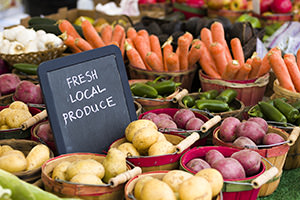 The fact that produce is not labeled organic doesn't necessarily mean it's swimming in pesticides. Sometimes it's quite the opposite. The best farms are those small enough where a single farmer can lovingly attend to every seedling. A farm that size can't afford a refrigerated truck, never mind a costly certification by the USDA. Many farms use organic practices, often much more stringent than those required by the government, but simply don't get certified. If a farm doesn't label their produce organic, it pays to ask why. You may discover a hidden source of organically farmed food, and if not, you'll be showing farmers that you care about how your food is grown. Even though farmers' markets have that off-the-grid caché, Econ 101 still applies. Over time, demand will create supply.
The fact that produce is not labeled organic doesn't necessarily mean it's swimming in pesticides. Sometimes it's quite the opposite. The best farms are those small enough where a single farmer can lovingly attend to every seedling. A farm that size can't afford a refrigerated truck, never mind a costly certification by the USDA. Many farms use organic practices, often much more stringent than those required by the government, but simply don't get certified. If a farm doesn't label their produce organic, it pays to ask why. You may discover a hidden source of organically farmed food, and if not, you'll be showing farmers that you care about how your food is grown. Even though farmers' markets have that off-the-grid caché, Econ 101 still applies. Over time, demand will create supply.
3. Bring Big Bags And Small Change
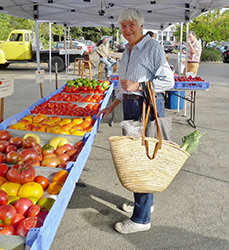 Some farmers market vendors offer bags, but they tend to be thin and flimsy plastic ones that groan under the pressure of any substantial produce purchase. That reusable canvas tote you have preciously stowed away is good for the earth and unerringly latter-day hippie-chic, and you should bring it along for those reasons.
Some farmers market vendors offer bags, but they tend to be thin and flimsy plastic ones that groan under the pressure of any substantial produce purchase. That reusable canvas tote you have preciously stowed away is good for the earth and unerringly latter-day hippie-chic, and you should bring it along for those reasons.
As a bonus, you're also being kind to the farmers by not cutting into their already slim profit margins. It's a visible gesture of goodwill toward the farmers. If your market sells eggs, cheese, milk, meat, or fish, bring a cooler.
Most farmers' markets are cash-only operations, and most farmers do all their daily dealings from a little cash box. Purchases will go easier and faster if you have exact (or close to exact) change.
4. Beware The 'Health Halo'
 Have you read about how people are more likely to order unhealthy foods from a menu that also features healthy foods? Given that shopping at a farmers' market is essentially jumping into a giant salad bowl, the health halo can really play hardball in that context. Remember, vegan donuts are still donuts.
Have you read about how people are more likely to order unhealthy foods from a menu that also features healthy foods? Given that shopping at a farmers' market is essentially jumping into a giant salad bowl, the health halo can really play hardball in that context. Remember, vegan donuts are still donuts.
5. Shop Early For Selection, Shop Late (Or In Bad Weather) For Deals
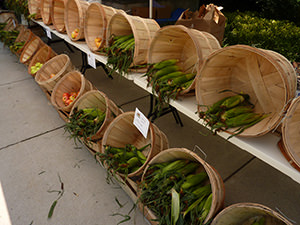 The season's first strawberries and finest morels will disappear within the first hour that the market is open, so if you've got your heart set on something in particular, it pays to wake up early. This is especially true if your market caters to restaurants as well as civilians, since chefs will be there first thing and won't always leave a lot for the rest of us.
The season's first strawberries and finest morels will disappear within the first hour that the market is open, so if you've got your heart set on something in particular, it pays to wake up early. This is especially true if your market caters to restaurants as well as civilians, since chefs will be there first thing and won't always leave a lot for the rest of us.
If you'd rather get a great deal at the possible expense of selection, do your shopping in the last hour of the market. Farmers without other distribution channels will often offer steep discounts at the end of the day to avoid driving back to the farm with a hard-earned truckload of compost. And if you can motivate yourself to go out on especially cold or rainy days, you'll get good prices while helping to keep your market thriving. Farmers raise this food for a living, however, so don't expect or ask for deep discounts. Also, some markets have rules against end-of-the-day discounts.
6. Don’t Shy Away From Buying Produce With Flaws
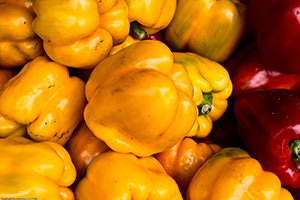 The ugly duckling makes a great confit and can often be bought for a song. Lots of shoppers, used to waxed, painted supermarket fruits bred for their uniform looks, will head straight for the most attractive produce at the farmers' market. But the oddest-looking varieties can be the best-tasting, and they'll often cost less, too.
The ugly duckling makes a great confit and can often be bought for a song. Lots of shoppers, used to waxed, painted supermarket fruits bred for their uniform looks, will head straight for the most attractive produce at the farmers' market. But the oddest-looking varieties can be the best-tasting, and they'll often cost less, too.
7. Buy In Quantity
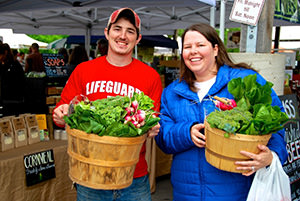 You'll also get a great deal if you buy in bulk. Even if you're not the canning type, why not buy a whole box of plum tomatoes instead of just a pint? Toss in five pounds of onions and a couple of bunches of basil and make a big batch of sauce to freeze. It hardly takes any longer than making a dinner's worth, and you'll thank yourself many a late-working evening.
You'll also get a great deal if you buy in bulk. Even if you're not the canning type, why not buy a whole box of plum tomatoes instead of just a pint? Toss in five pounds of onions and a couple of bunches of basil and make a big batch of sauce to freeze. It hardly takes any longer than making a dinner's worth, and you'll thank yourself many a late-working evening.
8. Make A Loop First
 The best way to tackle a farmers’ market is by making a loop around the entire market first. Stay on the outskirts of the crowd and take mental notes of prices and which booths you want to come back to. Sometimes larger farms will get prime market real-estate (closest to parking or highly visible) and will charge a little more.
The best way to tackle a farmers’ market is by making a loop around the entire market first. Stay on the outskirts of the crowd and take mental notes of prices and which booths you want to come back to. Sometimes larger farms will get prime market real-estate (closest to parking or highly visible) and will charge a little more.
9. Try Something New Each Week
 If you're lucky enough to visit a farmers' market with a selection of unusual produce, why not try one new food each time you visit? At best, maybe you'll discover a new love. At worst, you'll be making a contribution to (or in the spirit of) the Ark of Taste.
If you're lucky enough to visit a farmers' market with a selection of unusual produce, why not try one new food each time you visit? At best, maybe you'll discover a new love. At worst, you'll be making a contribution to (or in the spirit of) the Ark of Taste.
10. Know Your Seasons
 If you know a bit of what to expect when you get to the farmers market, making decisions at each stall is much easier. Learn what grows in your area when and talk to the growers about what will be coming to market in upcoming weeks.
If you know a bit of what to expect when you get to the farmers market, making decisions at each stall is much easier. Learn what grows in your area when and talk to the growers about what will be coming to market in upcoming weeks.
11. Plan For Spontaneity
 Yes, you’ll fare better if you plan your trip to the farmers market. However, you need to leave a bit of wiggle room for those strawberries you didn't know would be at market so early, or the zucchini blossoms you've never tried before. Trying new things is part of the fun of going to farmers markets.
Yes, you’ll fare better if you plan your trip to the farmers market. However, you need to leave a bit of wiggle room for those strawberries you didn't know would be at market so early, or the zucchini blossoms you've never tried before. Trying new things is part of the fun of going to farmers markets.
Photo Credits
Our Favorite Books On Eating Healthy

by Del Sroufe

by Terry Hope Romero

by Julia Mirabella

by Sandor Ellix Katz

 Grill The Healthy Way
Grill The Healthy Way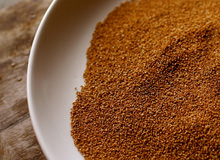 Move Over Quinoa, Teff’s The New Grain In Town
Move Over Quinoa, Teff’s The New Grain In Town Food Labelling Traps To Avoid
Food Labelling Traps To Avoid How To Pick The Best Milk For Yourself
How To Pick The Best Milk For Yourself










